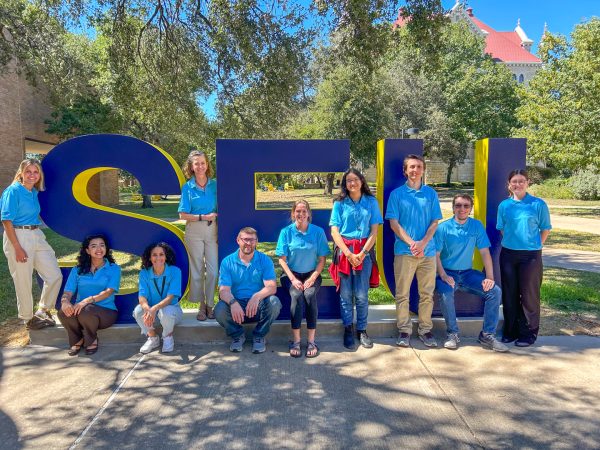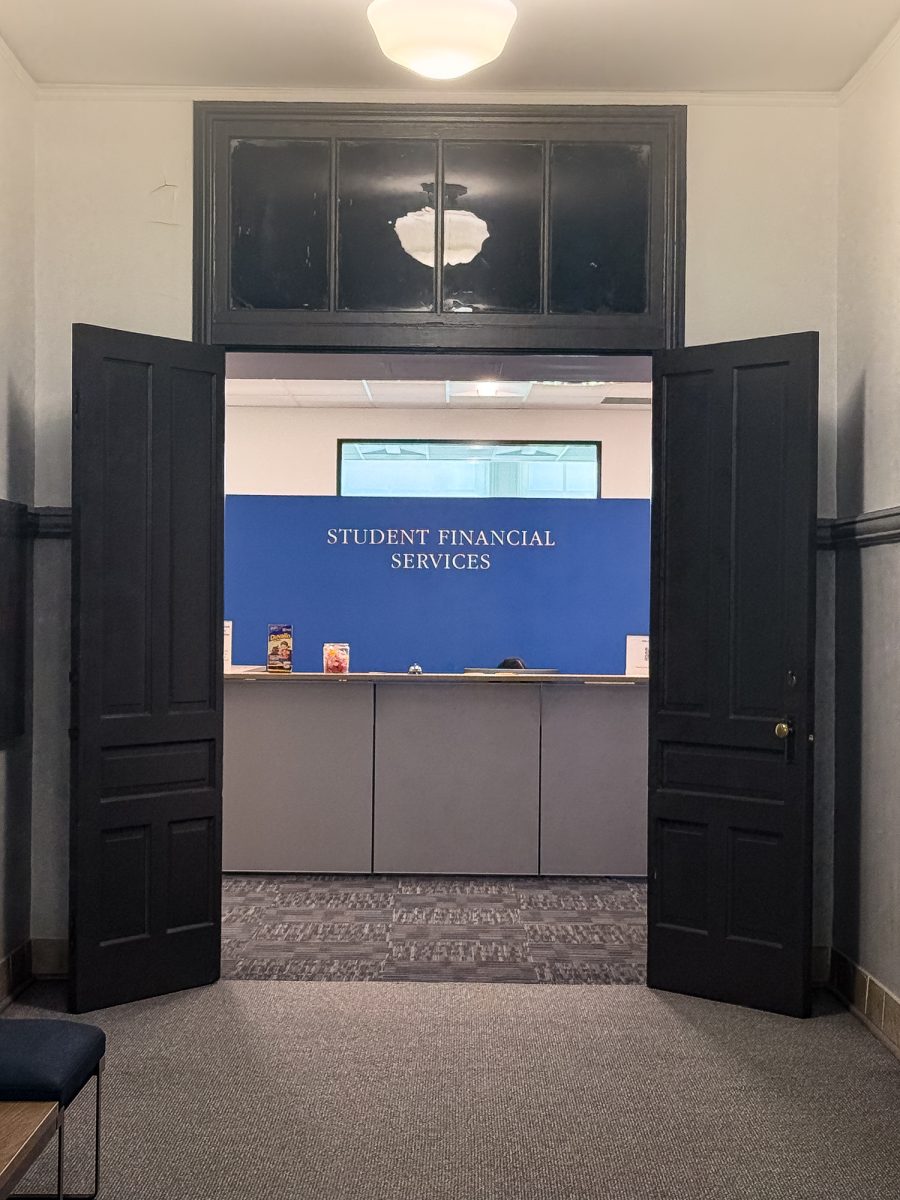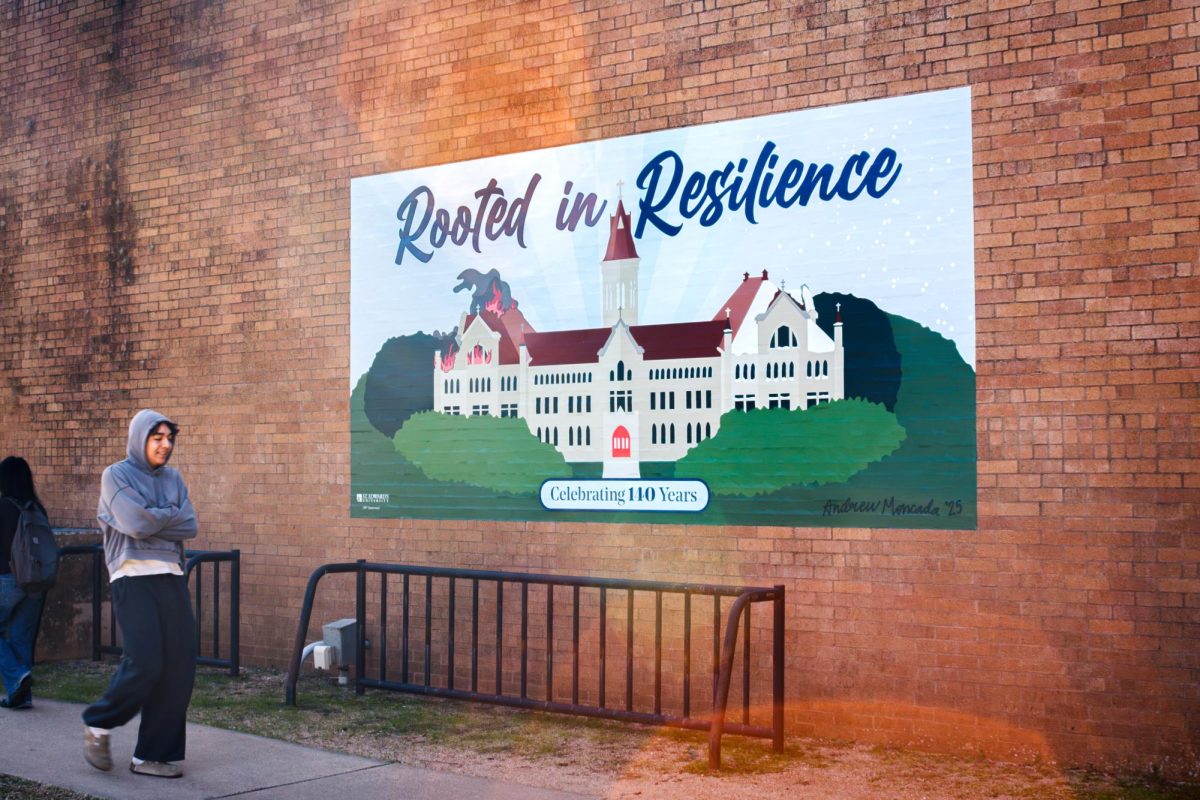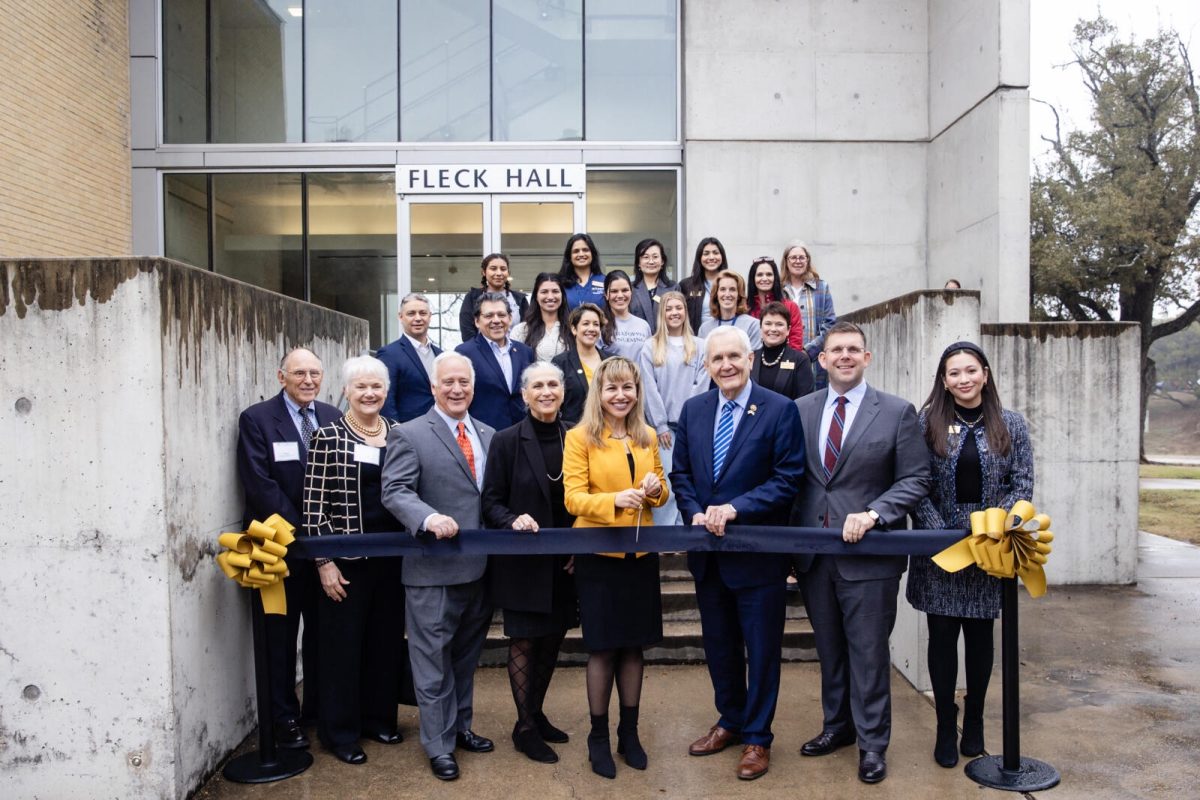A brief federal funding freeze, issued by the Trump administration in late January, sent ripples through higher education institutions nationwide, including at St. Edward’s University, where federal grants support important research and student opportunities.
The original memo, issued by the Office of Management and Budget (OMB) on Jan. 27, only one week after President Donald Trump was inaugurated, stated that, “Federal agencies must temporarily pause all activities related to obligation or disbursement of all federal financial assistance.”
On Jan. 29, Matthew J. Vaeth, acting director of the OMB, informed federal agencies that this memo had been rescinded.
Although the memo was rescinded, White House press secretary Karoline Levitt clarified in a press conference that same day that the review of federal funding would continue.
“The reason for this is to ensure that every penny that is going out the door is not conflicting with the executive orders and actions that this president has taken,” Levitt said at the press conference.
The incident has since highlighted the vital role that federal funding plays in supporting student success and research initiatives in higher education.
The Office of Sponsored Programs at St. Edward’s, under the direction of Garth Clayton, is managing approximately $8 million in federal funding requests this year. These grants, often invisible to students, play a crucial role in supporting academic and professional accomplishment.
“Grants do things that people don’t realize, like they fund people to do tutoring,” Clayton said. “Sometimes they fund Saturday academies where the professor makes him or herself available to students to cover or recover material. They have an impact on students, but I’m not sure that it’s always clear to the students that that’s where it’s coming from.”
One standout example of federal funding’s transformative impact, is the “From Education and Experiential Learning to Employment (E3): Cultivating the NEXTGEN of Natural Resources and Food Science” program. Sponsored by the U.S. Department of Agriculture, the E3 program is funded by a record $5 million grant, the largest single grant in the school’s history.

Led by professor of biological sciences, Trish Baynham, the E3 program provides support for students interested in food, agriculture, natural resources and human sciences. Out of the 33 funded projects nationwide, St. Edward’s is one of three private universities nationwide to receive this funding.E3’s impact extends beyond traditional financial aid, as it provides 28 four-year scholarships, each worth $15,000 annually. It also funds up to 20 paid internships each summer, where students get paid $800 weekly, including housing and paid travel expenses. These opportunities have opened doors for students to gain real world experience that align with their educational goals.
“We want people to be aware of careers,” Baynham said. “We want them to be networked and develop leadership, mentoring, communication skills and then pursue these kinds of careers.”
Joseph Gould, an environmental biology and climate change major, exemplifies the program’s impact. He is an E3 scholar and completed an internship with the U.S. Forest Service this past summer.
“I don’t think I’d be able to do (school) full time,” Gould said. “I don’t even know if I would’ve been able to continue staying at St. Edward’s without the scholarship money. It’s given me valuable chances to network. I now have a foot in the door with the federal government.”
The program has also enhanced the university’s curriculum, integrating real-world applications into natural science courses. This integration helps students develop skills, using the same equipment they might encounter in their future careers.
“We introduced more food into the microbiology lab,” Baynham said. “In biostatistics, (Matthew) Steffenson started introducing data sets that are from agriculture and natural resources kinds of topics.”
Fellow E3 scholar and environmental biology and climate change major, Hailey Sonka, emphasizes the program’s broader impact on her as a professional.
“The program has helped me in a nonobvious way of just feeling like my possible career is actually attainable and possible through this scholarship,” Sonka said. “It’s creating a path that I thought was a little blurry, and it’s making that path a bit clearer and possible with resources given to me.”
Despite the temporary uncertainty surrounding federal funding, Clayton remains optimistic about the future of these programs.
“I’ve been doing this for a long time and you see ups and downs,” Clayton said. “Grants are tied to critical pieces of our society … to school lunches for disadvantaged children, professional development for K-12 teachers and scientific research.”
While the funding freeze has prompted uncertainty across campus, it seems to not have dampened the spirit of scientific inquiry and academic pursuits at St. Edward’s. Students like Sonka continue their research with unwavering dedication.
“We are trekking along, and we will keep going until told not to,” Sonka said. “We are staying informed and continuing the science.”
Student determination, coupled with the transformative impact of federal funding programs like E3, ensures that the university will remain at the forefront of preparing the next generation of scientific leaders, making education and career opportunities accessible to all students.










